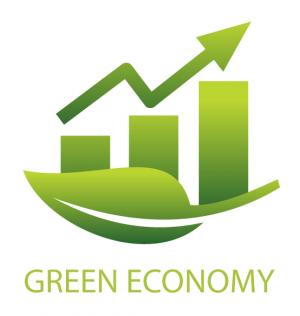Ortigas Greenways
Description
Source: Asian Development Bank
Non-motorized transport (NMT), and in particular walking, is the most basic of mobility options, but it is often the most neglected in terms of investment and policy support. Enhancing pedestrian and bicycle facilities can be a highly cost]effective means to simultaneously alleviate traffic congestion, reduce air and noise emissions, minimize greenhouse gas emissions, improve human health, create conditions for higher quality of life, stimulate new economic opportunities, and cultivate social equity. Planning and implementing NMT can also be achieved within modest investment levels.
gGreenwaysh are activity corridors that are free from motorized vehicles. Greenways create quality space for commercial exchange, health and recreation, and access to jobs and services. Successful greenway projects have been realized in cities such as Guangzhou, Peoplefs Republic of China and Seoul, Republic of Korea.
With the support of the municipalities of Pasig City and Mandaluyong City in the Philippines, the Asian Development Bank (ADB) is working to create a Greenways demonstration in the Ortigas Central Business District in Metro Manila, the Philippines. This project brings together ADB with various stakeholders, including local government, private businesses, civil society, and research organizations.
Currently, the intense traffic and lack of adequate footpaths and public space in the Ortigas area negatively affects quality of life. Around 70% of the areafs working population rely on public transport, and these persons suffer the most from the lack of a walkable environment. The initial Ortigas Greenways effort will seek to connect the Ortigas Metro Rail Transit (MRT) station with commercial centers and residential buildings.
While the current investment effort will be focused upon the Ortigas area, the long-term objective is to create an example of socially-inclusive and environmentally sustainable transport that could be replicated in cities across the Asia and Pacific region.
SDGS & Targets
Goal 8
Promote sustained, inclusive and sustainable economic growth, full and productive employment and decent work for all
8.1
8.1.1
Annual growth rate of real GDP per capita
8.2
Achieve higher levels of economic productivity through diversification, technological upgrading and innovation, including through a focus on high-value added and labour-intensive sectors
8.2.1
Annual growth rate of real GDP per employed person
8.3
Promote development-oriented policies that support productive activities, decent job creation, entrepreneurship, creativity and innovation, and encourage the formalization and growth of micro-, small- and medium-sized enterprises, including through access to financial services
8.3.1
Proportion of informal employment in total employment, by sector and sex
8.4
Improve progressively, through 2030, global resource efficiency in consumption and production and endeavour to decouple economic growth from environmental degradation, in accordance with the 10-Year Framework of Programmes on Sustainable Consumption and Production, with developed countries taking the lead
8.4.1
Material footprint, material footprint per capita, and material footprint per GDP
8.4.2
Domestic material consumption, domestic material consumption per capita, and domestic material consumption per GDP
8.5
8.5.1
Average hourly earnings of female and male employees, by occupation, age and persons with disabilities
8.5.2
Unemployment rate, by sex, age and persons with disabilities
8.6
8.6.1
Proportion of youth (aged 15-24 years) not in education, employment or training
8.7
Take immediate and effective measures to eradicate forced labour, end modern slavery and human trafficking and secure the prohibition and elimination of the worst forms of child labour, including recruitment and use of child soldiers, and by 2025 end child labour in all its forms
8.7.1
Proportion and number of children aged 5‑17 years engaged in child labour, by sex and age
8.8
Protect labour rights and promote safe and secure working environments for all workers, including migrant workers, in particular women migrants, and those in precarious employment
8.8.1
Fatal and non-fatal occupational injuries per 100,000 workers, by sex and migrant status
8.8.2
Level of national compliance with labour rights (freedom of association and collective bargaining) based on International Labour Organization (ILO) textual sources and national legislation, by sex and migrant status
8.9
By 2030, devise and implement policies to promote sustainable tourism that creates jobs and promotes local culture and products
8.9.1
Tourism direct GDP as a proportion of total GDP and in growth rate
8.10
Strengthen the capacity of domestic financial institutions to encourage and expand access to banking, insurance and financial services for all
8.10.1
(a) Number of commercial bank branches per 100,000 adults and (b) number of automated teller machines (ATMs) per 100,000 adults
8.10.2
Proportion of adults (15 years and older) with an account at a bank or other financial institution or with a mobile-money-service provider
8.a
8.a.1
Aid for Trade commitments and disbursements
8.b
By 2020, develop and operationalize a global strategy for youth employment and implement the Global Jobs Pact of the International Labour Organization
8.b.1
Existence of a developed and operationalized national strategy for youth employment, as a distinct strategy or as part of a national employment strategy
SDG 14 targets covered
Deliverables & Timeline
Resources mobilized
Partnership Progress
Feedback
Action Network


